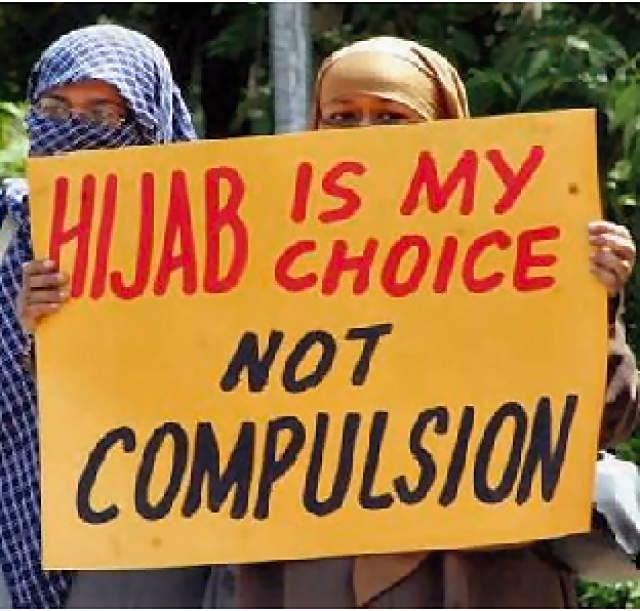
With the recent rise of right-wing extremism in Australia, it’s a no-brainer that Muslims are on the receiving end of some of the worst cases of Islamophobia to happen since the Cronulla riots in 2005. Of all these Muslims, it seems that Muslim women who choose to veil themselves suffer from these attacks the most.
As a Muslim woman who chooses to wear the hijab, my experiences with right-wingers along with the media who throw around Islamophobic statements on a daily basis have made me who I am today.
When I think back to some of the Islamophobic attacks I’ve experienced, I realise I haven’t had it as bad as other Muslim women. The usual pushing and shoving, racial slurs being thrown about and dirty looks when I walk in public are nothing new for any Muslim woman.
It is the product of these microaggressions that is more concerning. It is one thing to be verbally and physically abused but when it starts to affect a person’s mental health, a whole new problem arises in the Muslim community. Muslim youth who are going through mental health crises face a common stigma where they are told that mental illnesses don’t exist.
I have had first-hand experience with this. My bad experiences have made me realise that dealing with Islamophobia is more complex than I initially thought.
During the September raids in Sydney last year, I didn’t leave the house for three weeks straight. Living by myself at the time, my paranoia increased and my anxiety flew through the roof. I consumed all the propaganda on the news and the death threats sent to my community on social media sites.
I was weak enough to expose myself to all of this because I was suffering from a mental illness. I found there was no support from my community because we were already trying to cope with our own individual problems.
I looked to my Muslim sisters and I realised we were all suffering in similar ways. Muslim women who wear the hijab are religious markers that Islamophobic people target because we are visibly Muslim.
Similarly with Muslim men, their brown skin, ethnic sounding name, and full beards are all factors that racists consider when they decide to abuse Muslims and Islam in general. This stereotype is one of the worst things to be born out of Islamophobia.
Because of this stereotype, thousands of Muslims are stopped each year in airport customs —solely based on their appearance. This indicates that there is a deep seated racism and prejudice amongst law enforcement agents.
The government has a big role to play in setting a type of fear in the minds of the Australian people. The recent discussion of anti-terror laws as well as the implementation of laws that will revoke the Australian citizenship of known or potential terrorists are prime examples of the counter-productivity of the federal government.
If the government wants to ensure the safety of the citizens of this country as well as enforce an egalitarian and inclusive society, they should try to hide their racist and Islamophobic motives first, because honestly they are not fooling any socially aware person in this country.
I’m starting to realise that there is something lurking deep inside me — an internalised phobia or hatred of something. This is concerning to say the least. It could just be frustration aimed at the general Australian population or people who go out of their way to harass me because I’m Muslim. However, I like to think that I’m not as low as these people.
I believe that having this internalised hatred is counter-productive for any Muslim who wants to make changes in this society. Muslim women in particular have a difficult time gathering to talk about their experiences with Islamophobia.
I believe that among Muslim women there is a mutual understanding about all of this. We understand that we can’t compare experiences and debate whose experience was the worst. At the end of the day we all have bad experiences. So basically: suck it up.
When Muslims publically voice their concern or complain about the Islamophobia they face on a daily basis, we are labelled as extreme. I can’t really imagine a Muslim coming out and talking about the traumatising abuse they experience with a smiling face. Why is it that we are called extreme Muslims when we are seen with an angry face?
It’s time to stand up to these racists and tell them that we won’t tolerate this hatred and abuse. I have lived all my life staying silent about the Islamophobia I experience — but not any longer.
Speaking out against groups like Reclaim Australia has given me a confidence that would benefit many Muslims in my community. In this country we are constantly alienated and dehumanised by the right-wing media. This has to stop. We will not allow Islamophobic violence to silence us.
Like the article? Subscribe to Green Left now! You can also like us on Facebook and follow us on Twitter.